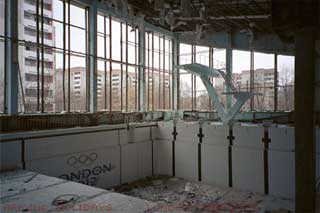 Another project from the Interaction Design department seen at the RCA Summer show. It’s one of my favourite and i have to admit that it might not be not be the easiest to grasp.
Another project from the Interaction Design department seen at the RCA Summer show. It’s one of my favourite and i have to admit that it might not be not be the easiest to grasp.
Ark Inc., by Jon Ardern, looks at our small and ineffectual attempts to live a truly sustainable life. Despite repeated warnings that we are fast approaching a point of no return, the world’s governments (and ourselves) pay these issues little more then lip service. The Ark Inc. project suggests that we adapt our life style to life “after the crash”, to the time when our actions have exhausted the resources of the Earth upon which we depend. Jon has imagined products and services for a cult-like investment company, called The Ark, that keeps you up-to-date on how badly the world is doing while reassuring you that your investment in post-crash life is doing well.
Introductory video.
 Disaster tourism
Disaster tourism
In Jon’s words:
ARK-INC. is an organization that provides a range of products which include manuals and books, radio station broadcasts and services that help mediate the transition to post apocalyptic living such as holidays in apocalyptic locations. Ultimately, ARK-INC. becomes a proponent of intrinsic value, helping customers realize their potential worth in the “prophesied” paradigm of global change and upheaval.
The project stems from a long-standing frustration with how the status quo responds to matters of wider and far reaching importance: environmental issues and sustainability.
While people “do their bit for the environment”: recycling what they buying fair trade, switching lights and trying to share cars, there does not seem to be a vehicle for public discourse that allows the debate to move on.
I have aimed to explore and expand this debate by reevaluating the issues of value and how value may change as the factors that influence it also change; or more explicitly “intrinsic value” versus “abstract value”. Ultimately I want the my audience to feel that it is necessary to move beyond the old concepts of sustainability and face the reality of our situation with real solutions not lofty rhetoric. I hope to inspire in the audience an understanding that events are not going to stand still, and that we need to meet the coming changes in new imaginative and unusual ways.
Crazy times call for crazy solutions!
